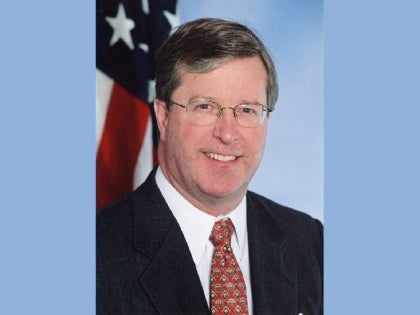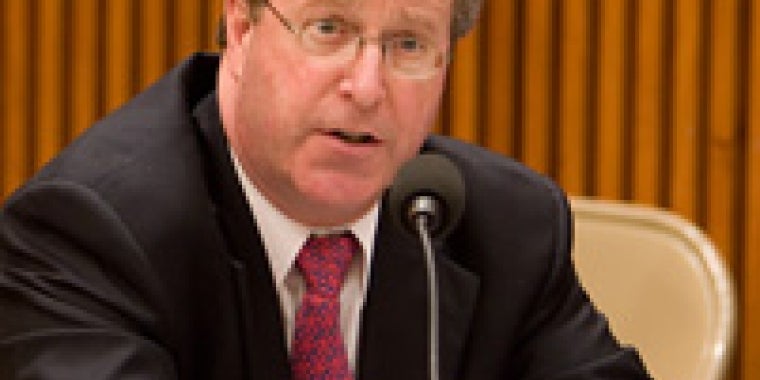
Senate Approves Comprehensive Medicaid Fraud Detection Plan

Albany, N.Y.-- New York State would have the most aggressive, comprehensive Medicaid fraud prevention strategy in the nation if legislation co-sponsored by Senator George H. Winner, Jr. (R-C, Elmira) and approvedby the State Senate with strong bipartisan support becomes law.
The Senatehas approved, by a vote of 58 to 1, a comprehensive "Medicaid Fraud Prevention and Recovery Reform Act" to overhaul the state’s Medicaid fraud detection efforts, a move that supporters believe could save state and local taxpayers upwards of $2 billion annually and vastly improve the accountability, integrity and quality of New York’s $46-billion Medicaid program.
"If we have any hope of achieving long-term property tax relief in New York State, we have to hit the bull’s-eye on Medicaid fraud prevention. The Senate plan is on target," said Winner, a member of the Senate Health Committee. "We need aggressive action against Medicaid rip-offs and scams."
Winner said that with today’s action, the Senate hopes to fully set the stage for final negotiations with state Assembly leaders in the days ahead. The Assembly has approved a separate version of Medicaid fraud prevention legislation, and legislators hope to convene a joint legislative conference committee to settle the remaining differences between the two houses before the Legislature adjourns its regular session next week.
"We don’t even begin to uncover the kinds of savings that can be achieved through more concentrated, aggressive Medicaid fraud and waste detection efforts like those we're proposing," Winner said.
The Medicaid Fraud Prevention and Recovery Reform Act of 2006 calls for:
> creating, in statute, a new, independent Office of Medicaid Inspector General by consolidating responsibilities and staff from eight agencies into one new office within the Department of Health;
> allowing local governments and district attorneys to share in Medicaid fraud recoveries if they provide information or evidence of fraud;
> increasing civil and criminal penalties for people who commit Medicaid fraud;
> requiring all health care institutions to implement corporate compliance and internal control programs;
> requiring the State Insurance Department to submit an annual report of health insurance fraud cases submitted by health plans;
> a $500,000 appropriation for the New York Prosecutors Training Institute to conduct an educational program on Medicaid fraud for local district attorneys; and
> adopting a State False Claims Act that would allow the state to collect 10 percent of the federal share of any recoveries made under the Act.



